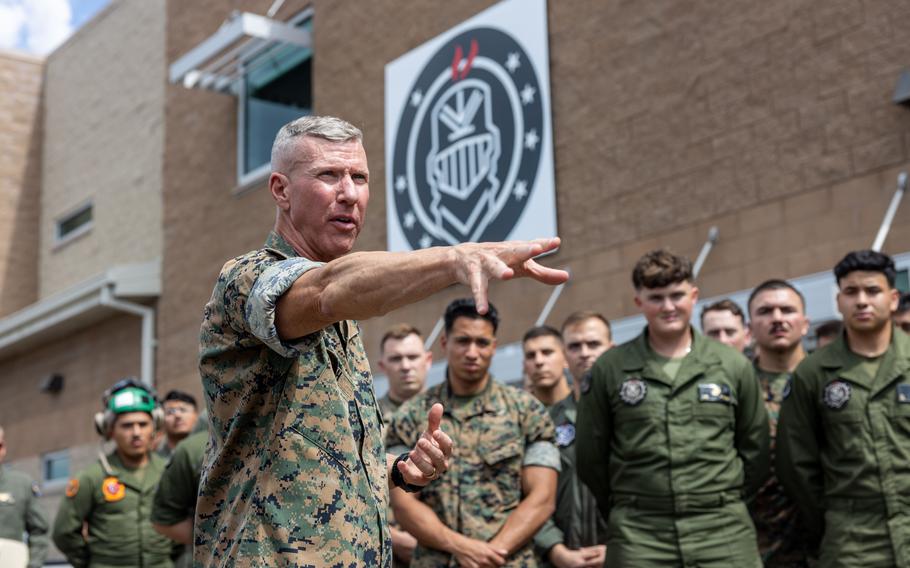
Marine Corps Gen. Eric Smith speaks with Marines on Aug. 16, 2023, at Marine Corps Air Station Miramar, Calif. (Sgt. Rachaelanne Woodward/U.S. Marine Corps)
WASHINGTON — Gen. Eric Smith, the new Marine Corps commandant, on Wednesday said his recovery is going well in his first public remarks about his health since suffering a heart attack 10 days ago.
“I appreciate the outpouring of support for my family and me. My recovery is going well, and I look forward to getting back in the fight as soon as I can,” Smith said in a statement.
Smith, who was confirmed by the Senate as the Marine Corps commandant in September, has been in the hospital since suffering the heart attack on Oct. 29 near his home at the Marine Barracks in Washington. At the time, he had been performing the duties of two jobs because the general nominated to become the assistant commandant was blocked from promotion along with hundreds of other military personnel by Sen. Tommy Tuberville, R-Ala.
Since September, Senate Democrats have sidestepped Tuberville’s hold by individually confirming several of the most senior military nominees, including Smith, Air Force Gen. Charles “CQ” Brown as chairman of the Joint Chiefs of Staff, Gen. Randy George as Army chief of staff, Adm. Lisa Franchetti as chief of naval operations, Gen. David Allvin as Air Force chief of staff and Lt. Gen. Christopher Mahoney as assistant Marine Corps commandant.
Tuberville’s blockade on military promotions is a protest against a Pentagon policy that reimburses troops who travel out of state to receive reproductive care, including abortions. Some Republican-controlled states have outlawed or imposed severe restrictions on the practice since the Supreme Court struck down Roe v. Wade in mid-2022.
The Marine Corps said it will be some time before Smith can resume his duties as commandant, even after he is discharged from the hospital. In the meantime, Mahoney will continue to perform his duties.
“Based on his baseline physical health and his rapid improvement over the last week, his medical team has recommended that he transition to inpatient rehabilitation to expedite his recovery,” the Marine Corps said Wednesday. “They are confident that with focused attention and daily interaction, he will be back to full-duty status sooner than if utilizing outpatient rehabilitation.”